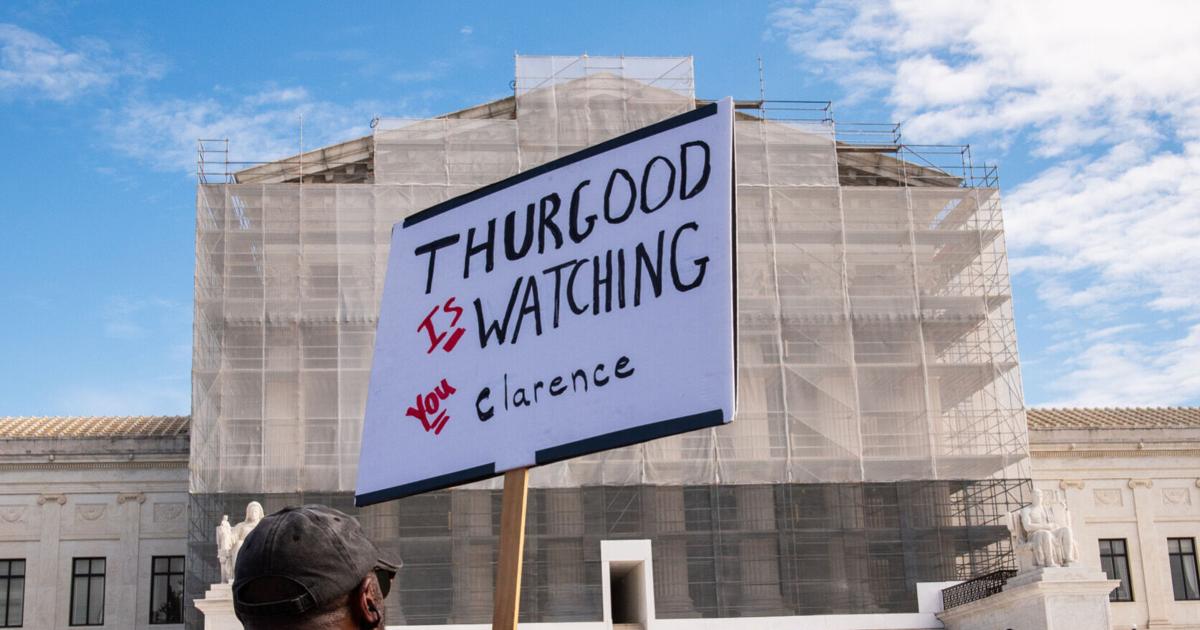
News
October 20, 2025
Supreme Court case could lead to loss of Black representation in Congress, but the scope is unknown
If the high court limits or strikes down Section 2, it would likely benefit Republicans. However, it wouldn't fully start until the 2028 elections and yield may few GOP gains.
A looming Supreme Court decision regarding Section 2 of the Voting Rights Act is raising concerns about potential reductions in Black representation in Congress. While the full impact remains uncertain, legal experts warn that a limitation or outright dismantling of this crucial section could significantly reshape the political landscape, potentially benefiting the Republican party.
Section 2 of the Voting Rights Act prohibits voting practices and procedures that discriminate on the basis of race, color, or membership in a language minority group. It has historically served as a powerful tool to challenge discriminatory redistricting plans that dilute the voting power of minority communities, ensuring fair representation in legislative bodies.
The case currently before the Supreme Court centers on the interpretation and application of Section 2. A ruling that narrows the scope of the Act, or even strikes it down entirely, could open the door for states to implement voting maps that diminish the ability of Black voters, and other minority groups, to elect candidates of their choice. This could lead to fewer Black representatives in Congress, altering the balance of power and potentially impacting policy decisions on a national level.
Although the implications are serious, the immediate effects are not expected to be drastic. The changes wouldn't fully materialize until the 2028 elections, giving states time to redraw district lines following the next census. Furthermore, analysts predict that the initial Republican gains resulting from such a decision may be relatively modest. The exact number of seats that could shift remains a topic of debate and depends heavily on how states respond to the new legal framework.
Despite the uncertain scope, civil rights advocates are sounding the alarm, emphasizing the importance of Section 2 in protecting the voting rights of marginalized communities. They argue that weakening or eliminating this provision would reverse decades of progress and undermine the principles of equal representation and democratic participation. The Supreme Court's decision will undoubtedly have far-reaching consequences, shaping the future of American politics and the representation of minority voices in Congress. The coming months will be crucial as legal scholars and political analysts closely monitor the court's actions and prepare for the potential ramifications of this landmark case.
Section 2 of the Voting Rights Act prohibits voting practices and procedures that discriminate on the basis of race, color, or membership in a language minority group. It has historically served as a powerful tool to challenge discriminatory redistricting plans that dilute the voting power of minority communities, ensuring fair representation in legislative bodies.
The case currently before the Supreme Court centers on the interpretation and application of Section 2. A ruling that narrows the scope of the Act, or even strikes it down entirely, could open the door for states to implement voting maps that diminish the ability of Black voters, and other minority groups, to elect candidates of their choice. This could lead to fewer Black representatives in Congress, altering the balance of power and potentially impacting policy decisions on a national level.
Although the implications are serious, the immediate effects are not expected to be drastic. The changes wouldn't fully materialize until the 2028 elections, giving states time to redraw district lines following the next census. Furthermore, analysts predict that the initial Republican gains resulting from such a decision may be relatively modest. The exact number of seats that could shift remains a topic of debate and depends heavily on how states respond to the new legal framework.
Despite the uncertain scope, civil rights advocates are sounding the alarm, emphasizing the importance of Section 2 in protecting the voting rights of marginalized communities. They argue that weakening or eliminating this provision would reverse decades of progress and undermine the principles of equal representation and democratic participation. The Supreme Court's decision will undoubtedly have far-reaching consequences, shaping the future of American politics and the representation of minority voices in Congress. The coming months will be crucial as legal scholars and political analysts closely monitor the court's actions and prepare for the potential ramifications of this landmark case.
Category:
World